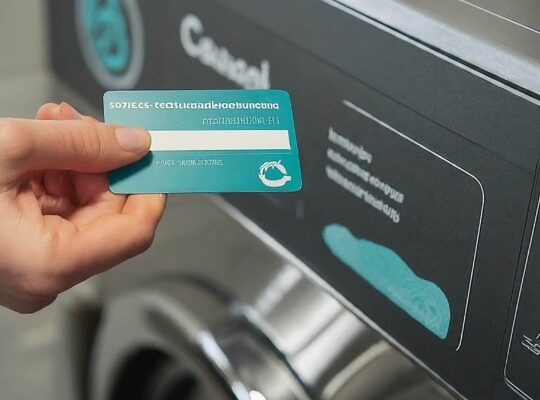There is no doubt that lawsuits are perceived to be costly endeavors, an endeavor reserved only for individuals with substantial financial resources. This is a perception that greatly deters people from seeking justice when they have been wronged. However, the reality is more nuanced. Do you need money to sue someone? It is true that you need to have money but while having money makes the process easier, there are ways one can pursue legal action without major financial resources.
Costs Involved in a Lawsuit
During lawsuits, multiple forms of costs are involved. The common ones, which cannot fail to appear or be budgeted for include:
- Filling fees – These are the initial costs paid to the court to begin a lawsuit. These fees vary depending on the jurisdiction and the type of case but generally range from $50 to $500. In some cases, filing fees can be waived for individuals who cannot afford them, known as “in forma pauperis” status.
- Attorney Fees – Often the most significant expense in a lawsuit. Lawyers typically charge by the hour, with rates ranging from $100 to $500 or more, depending on their experience and the complexity of the case. Some lawyers may work on a contingency fee basis, meaning they only get paid if you win the case, usually taking a percentage of the settlement or judgment.
- Court Costs – Includes various expenses such as copying and mailing documents, deposition fees, expert witness fees, and travel expenses. These can add up quickly, often reaching thousands of dollars.
- Miscellaneous Expenses – This includes costs for private investigators, process servers, and any other services required to build and present your case.
Options for a Person Without Significant Financial Resources
In case a person lacks adequate financial resources, enough to pay out-of-pocket for a lawsuit, there are options that can be exploited.
1. Contingency Fee Agreements
Contingency fee agreements are a popular option for those who need legal representation but lack the funds to pay upfront. Under this arrangement, the attorney agrees to take on a case without any initial payment, instead receiving a percentage of the settlement or judgment if the case is won. This percentage typically ranges from 25% to 40%, depending on the complexity of the case and the agreement between the lawyer and the client.
Advantages of Contingency Fee Agreements
- No Upfront Costs: Clients do not have to pay any legal fees unless they win the case. This makes it accessible for individuals who might not have the financial means to afford an attorney otherwise.
- Incentive for Attorneys: Lawyers are motivated to win the case since their payment depends on the outcome. This can result in a more vigorous and dedicated representation.
- Access to Experienced Lawyers: Contingency fee agreements can provide access to highly skilled attorneys who might otherwise be out of reach financially.
Considerations and Potential Drawbacks
- Percentage of Settlement: The agreed-upon percentage can be substantial, reducing the amount of money the client ultimately receives.
- Out-of-Pocket Expenses: Even with a contingency fee agreement, clients might still be responsible for certain out-of-pocket costs, such as court filing fees, expert witness fees, and other miscellaneous expenses.
- Understanding the Agreement: It’s crucial for clients to thoroughly understand the terms of the agreement, including how costs and expenses will be handled and what percentage the attorney will take. Clear communication and a written agreement can help prevent misunderstandings.
Related Post: Who Gets the Money in a Wrongful Death Lawsuit
2. Pro Bono Services
These are legal services provided for free or at a significantly reduced cost. Many lawyers are committed to giving back to the community by dedicating a portion of their time to pro bono work. These services are often targeted at individuals who cannot afford to pay for legal representation.
How to Find Pro Bono Services
- Legal Aid Societies: Nonprofit organizations that offer free legal services to low-income individuals often have lists of lawyers willing to take on pro bono cases.
- Bar Associations: Local and state bar associations frequently have pro bono programs and can provide referrals to attorneys who offer these services.
- Law Schools: Many law schools have clinics where law students, supervised by experienced attorneys, provide free legal assistance to the community.
Types of Cases Handled Pro Bono
Pro bono services cover a wide range of legal issues, including family law, housing disputes, immigration issues, and civil rights cases. The availability of pro bono services may vary based on location and the specific legal needs of the community.
3. Legal Aid Organizations
Legal aid organizations provide free or low-cost legal services to individuals who qualify based on income. These organizations are typically funded by government grants, private donations, and other sources, ensuring that everyone has access to legal representation, regardless of their financial situation. They include the Legal Services Corporation (LSC) and the Legal Aid Society.
Services Offered by Legal Aid Organizations
- Legal Advice and Representation: Assistance with various legal issues, including family law, landlord-tenant disputes, employment law, and public benefits.
- Education and Outreach: Providing information and resources to help individuals understand their legal rights and responsibilities.
- Self-Help Resources: Offering guides, forms, and other tools to assist individuals in representing themselves in legal matters.
How to Qualify for Legal Aid
Eligibility for legal aid services typically depends on income level, residency, and the type of legal issue. Each organization has its own criteria, so it’s important to check with the specific legal aid office in your area to determine if you qualify.
Click here for more
4. Small Claims Court
Small claims court is designed to handle disputes involving smaller amounts of money, providing a faster and more affordable option than traditional court proceedings. This type of court is intended to be user-friendly, allowing individuals to represent themselves without the need for an attorney.
Advantages of Small Claims Court
- Lower Filing Fees: The cost to file a case in small claims court is typically much lower than in other courts, making it accessible to more people.
- Simplified Process: Procedures are simplified, and the rules of evidence are more relaxed, enabling individuals to present their cases without the need for legal representation.
- Speed: Cases are usually resolved more quickly in small claims court compared to other types of courts.
Limitations of Small Claims Court
- Monetary Limits: There is a cap on the amount of money that can be claimed, which varies by state but generally ranges from $2,500 to $25,000.
- Self-Representation: While self-representation can save money, it also means that individuals need to be well-prepared to present their cases effectively.
Preparing for Small Claims Court
To maximize the chances of success in small claims court, it’s essential to:
- Gather all relevant documents and evidence.
- Prepare a clear and concise presentation of your case.
- Understand the court procedures and rules.
5. Crowdfunding
Crowdfunding has emerged as a popular way to raise money for legal expenses. Platforms like GoFundMe, Kickstarter, and others allow individuals to share their stories and solicit donations from the public to cover their legal costs.
How Crowdfunding Works
- Create a Campaign: Set up a campaign on a crowdfunding platform, explaining the legal issue, the need for funds, and how the money will be used.
- Share Your Story: Use social media, email, and other channels to spread the word and encourage people to donate.
- Manage Donations: Funds raised through the campaign can be used to pay for attorney fees, court costs, and other legal expenses.
Tips for a Successful Crowdfunding Campaign
- Compelling Narrative: A compelling and heartfelt story can attract more donations. Be clear about your legal situation and why you need help.
- Transparency: Be transparent about how the funds will be used and provide updates on the progress of your case.
- Engage with Donors: Thank donors and keep them informed about the impact of their contributions.
Potential Challenges
While crowdfunding can be a powerful tool, it’s not guaranteed to raise the needed funds. It requires effort to promote the campaign and reach potential donors. Additionally, some platforms charge fees for their services, which can reduce the total amount raised.
Similar Post: How Much Money Can You Sue Someone for Assault
Best Alternatives for a Person with Limited Amount of Money
For a person with a limited amount of money, there are alternative dispute resolution (ADR) that are worth considering. These processes/alternatives are less costly and time-consuming than a full-blown lawsuit.
Mediation
A collaborative process where a neutral third party, known as a mediator, assists the disputing parties in reaching a mutually acceptable resolution. Unlike a judge or arbitrator, the mediator does not impose a decision but facilitates communication and negotiation between the parties.
How Mediation Works
- Initiation: Mediation typically begins when both parties agree to resolve their dispute through mediation. This can be voluntary or mandated by a court.
- Selection of Mediator: The parties select a mediator, who is usually an expert in the relevant field of dispute.
- Mediation Session: During the session, the mediator meets with both parties together and separately (if necessary) to discuss the issues and explore potential solutions.
- Agreement: If the parties reach an agreement, the mediator helps draft a settlement agreement, which is then signed by both parties and can be enforceable in court.
Advantages of Mediation
- Cost-Effective: Mediation is generally less expensive than going to court, as it involves fewer procedural steps and lower attorney fees.
- Time-Saving: Mediation can be scheduled more quickly than a court date, and sessions typically take less time than a court trial.
- Control and Flexibility: The parties have more control over the outcome and can tailor the agreement to their specific needs, rather than having a solution imposed by a judge.
- Preservation of Relationships: Mediation can be less adversarial than litigation, which can help preserve business, family, or personal relationships.
Examples of Mediation Use
- Family Disputes: Issues such as divorce, child custody, and support are often resolved through mediation to minimize emotional stress and preserve relationships.
- Workplace Conflicts: Employers and employees may use mediation to resolve disputes related to discrimination, harassment, or contract disagreements.
Arbitration
It is a more formal process than mediation, where a neutral third party, known as an arbitrator, hears both sides of the dispute and makes a binding decision. Arbitration can be either voluntary or mandatory, depending on the contract terms or the nature of the dispute.
How Arbitration Works
- Agreement to Arbitrate: The process begins when both parties agree to arbitrate their dispute, often stipulated in a prior contract agreement.
- Selection of Arbitrator(s): The parties select one or more arbitrators who have expertise in the subject matter of the dispute.
- Hearing: The arbitrator conducts a hearing where both parties present their evidence and arguments. The process is less formal than a court trial but more structured than mediation.
- Decision: After reviewing the evidence and hearing the arguments, the arbitrator issues a decision, known as an award. This decision is typically binding and enforceable in court.
Advantages of Arbitration
- Expert Decision-Makers: Arbitrators are often experts in the field related to the dispute, providing informed decisions based on industry standards and practices.
- Cost and Time Efficiency: Arbitration can be less costly and quicker than litigation due to streamlined procedures and limited discovery.
- Flexibility: The parties can agree on procedural rules and the format of the arbitration, allowing for a tailored process.
- Confidentiality: Like mediation, arbitration is a private process, and the proceedings and outcomes are not part of the public record.
- Finality: Arbitration awards are generally final and binding, with limited grounds for appeal, providing a definitive resolution to the dispute.
Examples of Arbitration Use
- Commercial Contracts: Businesses often include arbitration clauses in contracts to ensure a swift and expert resolution of disputes.
- Employment Disputes: Employers and employees may use arbitration to resolve disputes over employment contracts, wrongful termination, and other workplace issues.
Final Remarks
Do you need money to sue someone? Lawsuits cannot be completed successfully without having money. Although a lot of money is not needed to sue someone, there are costs that are involved which cannot be completed without money. For instance, filing a lawsuit requires money, copying documents requires money and so does serving the defendant with the lawsuit papers. In a nutshell, you will need to have at least $200 with you, that is on the low side.








